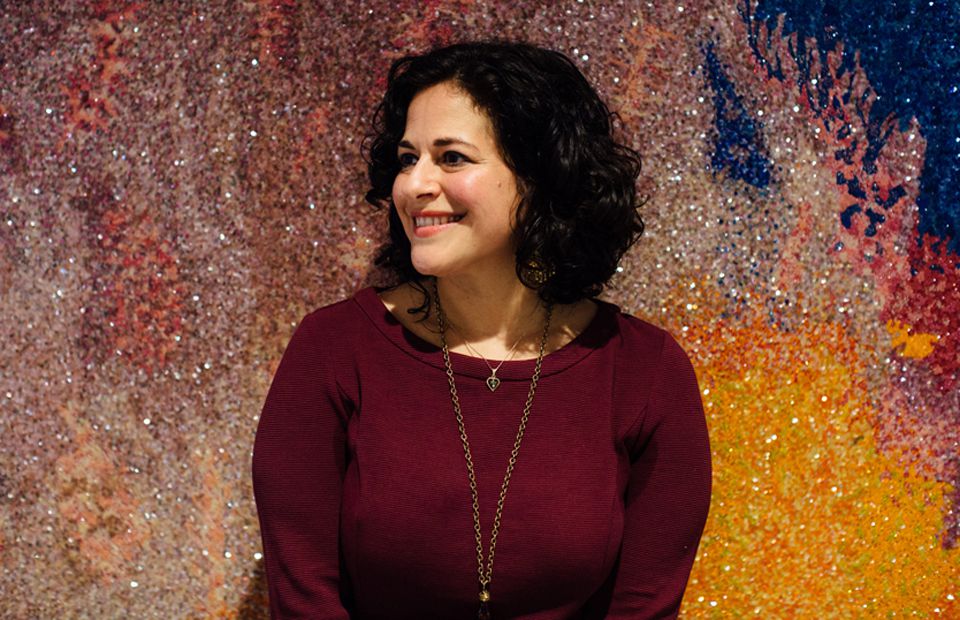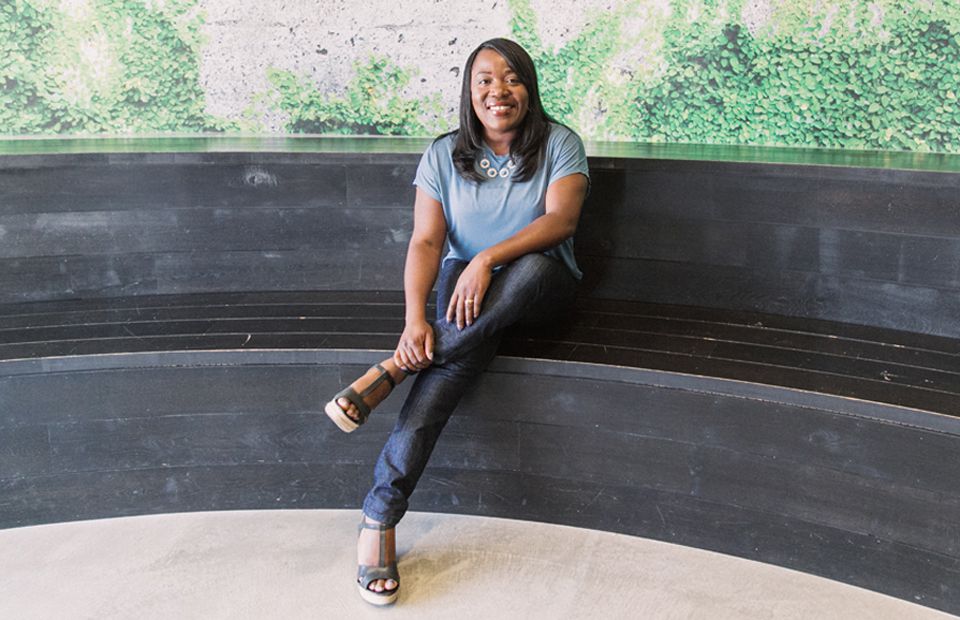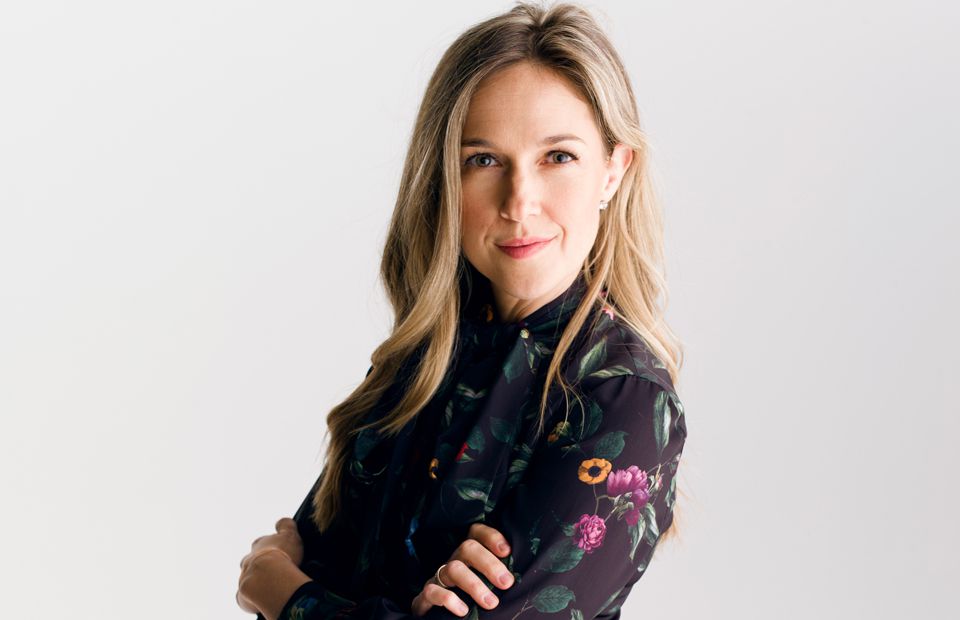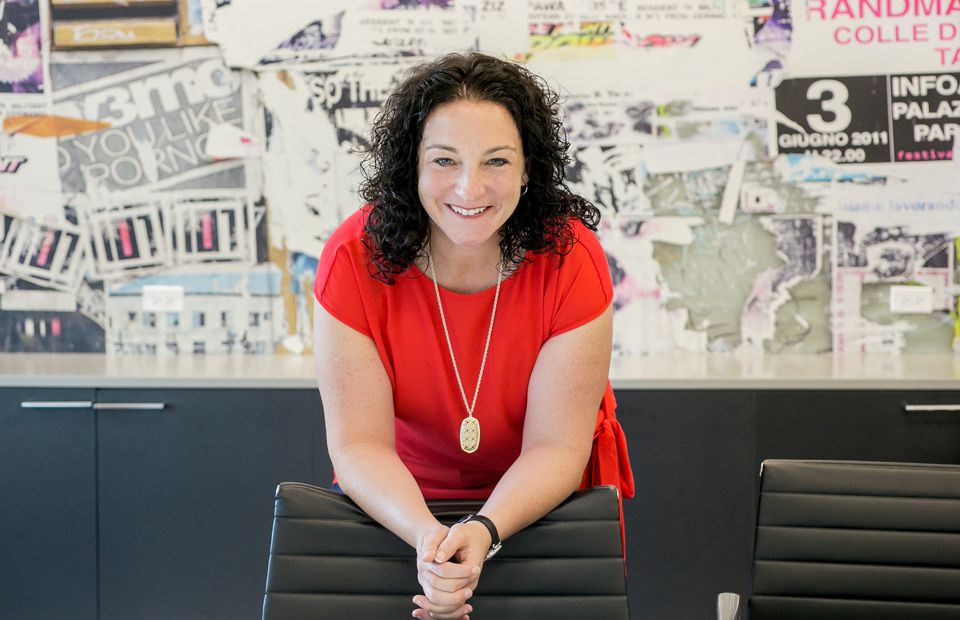Keeping busy has always been an important part of Nicole Iida’s work life. Ever since college when she held teaching assistant positions and various office jobs throughout the summers, Nicole has relied on a full schedule to keep her happy and motivated.
In Advisory Services at Deloitte & Touche, Nicole has maintained that fast-paced, hectic lifestyle that she thrives on. Long hours in the office, countless meetings and phone calls, and lots of trips to the cities where target companies are located (this year alone she’s jet setted off to New York, Washington, San Francisco, and Wisconsin!)—all are part of what makes Nicole’s job so fulfilling.
Ironically, as a kid, Nicole thought her dad’s career in accounting was “completely boring,” but by learning more about the industry and gaining a first-hand appreciation for the trade, Nicole quickly realized that it was quite the opposite. With an ever-changing work routine and lots of tight deadlines, Nicole has learned to always stay on her toes and embrace the chaos.
Her Starting Point
Many people find the transition between college and “real life” a bit daunting. Can you tell us about your journey? What was your first job out of college?
My first job post-college was with Deloitte’s audit practice in Los Angeles. It was a Big 4 entry-level public accounting position, and I was the most junior member of the team. I had interned with the firm during the summer before my senior year, which made the transition a bit easier. The biggest difference was that, as an intern, you generally were only expected to work 8-hour days. This wasn’t the case when I started full-time.
In January, I started my first of five “busy seasons” with our audit practice. Busy season is exactly what it sounds like…busy. Despite the long work hours and late nights, I learned a great deal in my first year.
To be honest, I didn’t find the transition between college life and “real life” that difficult. Because I worked during my summers and held teaching assistant positions during college, I had been exposed to office life and also learned how to balance and manage my schedule. If you can’t tell, I like to keep busy (my friends think I’m a little crazy). Busy is what keeps me going!
How has your college degree prepared you for your current endeavors? Do you recommend that people interested in accounting embark on a streamlined path or explore a little more?
I think that there are some professions and industries where a degree in that field is beneficial, and I do believe that accounting is one of them. Although, that said, I think it is possible to succeed (and I have seen it) with a non-accounting background. If you want to do the public accounting CPA route, in my experience, the firms (small and big) only recruit accountants. I also think that having an undergrad degree in accounting helps to prepare you and allows you to be eligible to sit for the CPA exam.
Based on my personal experiences, I think that my job would be very difficult without my fundamental accounting knowledge. But, I also believe that my past experiences in audit have contributed significantly to my success in my current role. I spend the majority of my time performing financial due diligence on target companies and in order for me to really be able to pick apart a company’s financial statements and business, it is important to understand how the pieces all fit together.
I believe in a diverse education though and I think that college is a time to explore other areas of interest. So do something for yourself. I joined a fashion club and helped to orchestrate two fashion shows showcasing student designers. I also got a Masters, and although it’s accounting-related, I don’t use that degree since my area of focus is not tax.
When did your passion for accounting first begin, and what first steps did you take in order to establish yourself as a pro?
If I’m being completely honest, I never planned to be an accountant. My dad is a former public accountant and currently a CFO. Growing up, I thought that his job was completely boring (sorry, Dad). His job isn’t boring; I was just too young to understand and appreciate it. However, I did know that I was never going to be an art major (my drawing skills are terrible), and that my calling was in something math, science or business.
I entered USC as a business major and was certain that I would concentrate in finance. But after my first year of school and an internship as a summer analyst at a private equity firm, I started to see the value in accounting. I was asked to evaluate and analyze financial statements, but I didn’t even really know how to read them. I came back that semester and changed my major.
What do you love most about working at Deloitte? What is the company culture like?
The people. I have the opportunity and pleasure of working with bright, intelligent and motivating people who challenge and push me to do my best, and have helped me succeed.
I am a big believer in paving your own career path, but I also believe that it’s important to find formal and informal mentors. I’ve always had advocates and supporters within this firm. Ten months ago, when I told my bosses and our practice leader that I wanted to switch groups, one of them told me that there were two things they wanted for me and my career: 1) for me to be happy, and 2) for my name to be associated with this firm. They helped push my transfer process along and were my biggest advocates!
In addition, this place has given me friendship. I’ve developed close and personal relationships with former colleagues. They are some of my closest friends today, and our paths would not have crossed had we not worked together.

Her Big Break
How do you stay organized? What tools/resources do you utilize (i.e. iPhone, apps, etc.)? What skills are essential to do your job well?
I’ve always been a bit organization-crazy. I’ve always loved lists and spreadsheets, and I get such satisfaction when I get to cross items off. But from a daily life and schedule perspective, I rely heavily on my Outlook calendar, which is synced directly to my phone. I put everything in my calendar, from work calls and meetings, to scheduled gym sessions with my personal trainer. Our travel booking system even sends invites to our calendars for our hotel and flight reservations, which is awesome and so convenient. As a frequent traveler, having my schedule in one place is essential as it allows me to keep up with everything in my life (personal and work), especially when I’m on the road.
Could you let us in on any stumbles you might have made in your position? How did you get through them?
This is a hard question! I am by no means perfect, but I’ve been struggling to find a specific instance. I think that there is one thing that I’ve learned to deal with, which is that I’m not expected to know everything. I’ve been so used to being able to either find the answer or know the answer that sometimes I struggle with just raising my hand and admitting that I don’t know. We’re all human and we’re not expected to have all the answers.
If we had the chance to peek at your schedule, what would an average day look like?
Every morning, I check my calendar to see what my day looks like. This enables me to prioritize all of the non-scheduled things that I hope to accomplish. It also usually starts with a soy latte from Starbucks. I love coffee! And on a really productive morning, I’ve fit in a quick run, gym session, training session or a little DVD workout.
My days constantly change; but that’s what keeps it exciting. My projects and teams generally drive my schedule. Some days, it is phone calls and meetings; and on other days, I find myself locked in my office so that I can analyze data and write a report. Other days I find myself sitting in one of our big conference rooms in one of our offices in another city cranking away with the team. Because our work is transaction-based and relatively dependent on where the target companies are located, travel is fairly frequent. This year alone, I’ve done stints in the San Francisco Bay Area, Washington, Wisconsin and New York! You may call me crazy, but I kind of love the chaos and travel. It’s even better when I get to go to a city where I have friends and we’re able to meet up for dinner and/or drinks.
What is the most challenging part of your job? How do you keep yourself from getting burnt out?
The most challenging part of my job is the unpredictably and constant change. My work is transaction/deal-based and generally deals aren’t scheduled out in the future, but when they start, things move quickly and we’re usually running full speed ahead. This also is what keeps me coming back for more though. It definitely keeps me on my toes!
I sought out this change. And when I took this job seven months ago, I knew that there would be some cancelled plans and weekends put on hold. For me, it’s about balance and making time to do things for me. What that means is change. Sometimes this means just spending time with family or friends, while other times it’s a vacation across the country. Or it’s a glass of wine with girlfriends, or just a massage.

Her Perspective
What skills are essential to working as an accountant? Do you think having an industry niche is important?
I work in a client service-based industry, so understanding and building client relationships is essential. Being able to communicate with and understand our clients allows us to better serve them. It’s also critical to have strong interpersonal and communication skills. As I’m often working with teams from across the country and sometimes even internationally, it’s important that we’re able to communicate effectively. It’s also important to be able to play nice with others; we work in teams. Staying organized, paying attention to details and managing time also is crucial.
Based on my experience, an industry niche is important, but it’s not essential. Different industries have different issues, and being industry proficient definitely helps. However, I spent the first five years of my career primarily focused on financial services clients, but over the last seven months I have served technology, healthcare and e-commerce clients.
While an industry niche helps, I think that there are ways to overcome that by demonstrating a willingness and desire to learn, and the ability to pick up things quickly and ask questions when you just don’t know.
Translating passion into a career is tough. What advice would you give to women trying to figure this out?
My piece of advice would be to find an internship in the field that you are—or you think you are—interested in. It doesn’t have to be the exact job, but I think that there’s a big benefit in being exposed to office life and that industry’s culture prior to full-time employment. And hopefully, it makes that transition a little bit easier.
Furthermore, find something that excites you and drives you to be better, and figure out what’s important to you. I have a strong desire to learn and teach and I love being challenged. That’s important to me. It may not be important to you, and that’s okay. Also, you don’t need to know immediately post-college what that is, and if you fail a couple of times, keep trying. Try, try and try again!
What are the more monotonous parts of your job? How do you power through them?
The administrative items are not the most exciting. But, they have to be done, so I do them. The quicker that I get all of those items done, the faster I get to the real work. I don’t like having to redo things, so I take my time and make sure that it’s done right. I’m a doer, which means I try to be positive, power through and always look for the light at the end of the tunnel.
And finally, what do you wake up looking forward to? What’s next for your career?
My morning latte…kidding!
I’m excited for what the future holds. I don’t know exactly what that means and I’m okay with that. If you would have asked me ten years ago, I’m certain that I would have had the next ten years of my life planned.
Honestly, I’m not sure what’s next. I do love working for this company and work with such great individuals, so maybe it’s a life-long career here, or maybe it’s private industry or even something completely different. Although I will say that I don’t see any move in the near future.
You May Also Like

Consumer Goods
Our New Dream Job? Vice President of Social Consciousness & Innovation
"The truth is, having a more responsible supply chain or more responsible business is made up of lots of small actions. And one thing that I really love about my work is that nothing is black and white. It's all gray space."

Consumer Services
An Executive at Intuit on How to 'Send the Elevator Back Down'
"What I often tell engineers—especially women engineers—is that it’s good to be excellent, but you’ve got to make sure it’s not a well-guarded secret."

Consumer Services, Technology
A Top Lawyer Talks Leadership, Transparency, and a Music Empire's Goals for Diversity
As Chief Counsel at Pandora, Adelmise Warner has a few thoughts on leaning in.

Consumer Goods
Rising Tide Society's Founder on Why Not Everyone's Cut Out for Entrepreneurship
Natalie Franke on creative entrepreneurship and her journey with Rising Tide Society

Consumer Services, Technology
Here's How a Female V.P. at a Tech Startup Faces the Gender Gap
Nikki Pechet on writing your own maternity leave policy and taking a job for joy, not money.

Consumer Goods, Technology
A Sales V.P. on What It's Like to Work at Pandora
Casey Forbes is living an audiophile's dream career.
Get the Best Career Advice Delivered To Your Inbox
Join our newsletter to stay in the loop.
